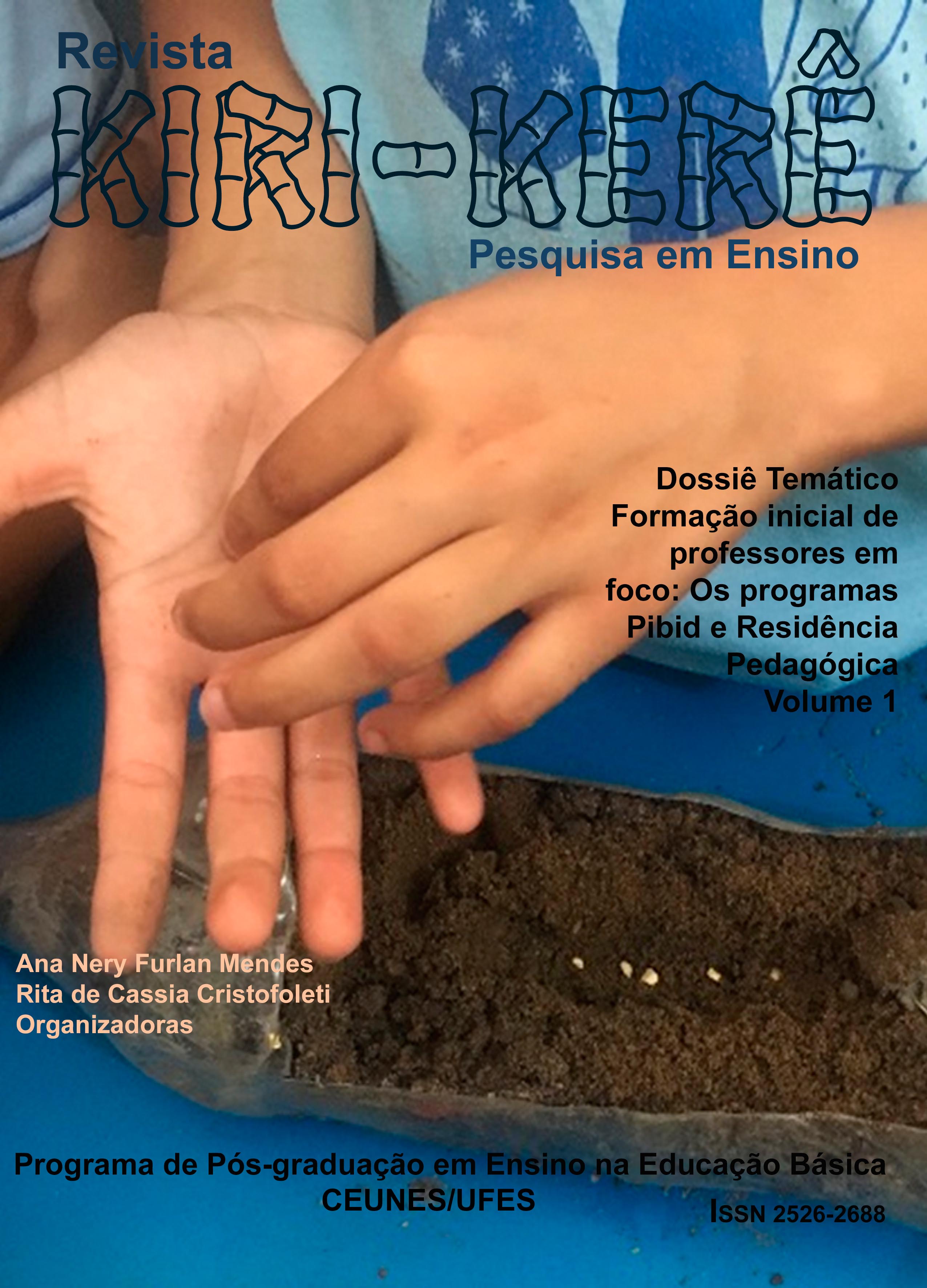Potencialidades da aula de campo no estudo de Geografia na região da Foz do Rio Jucu no bairro Barra do Jucu/Vila Velha/ES
DOI:
https://doi.org/10.47456/krkr.v1i5.32517Resumo
O presente artigo se propôs a apresentar uma prática de ensino da Geografia no âmbito do Programa Residência Pedagógica em Geografia, da Universidade Federal do Espírito Santo (UFES), com estudantes do 6º ano de uma escola-campo, localizada no município de Vila Velha/ES. A atividade descrita neste artigo fundamenta-se na reflexão da práxis preconizada por Freire (2001) e tem como objetivo relacionar os limites e possibilidades da aula de campo e suas contribuições para o desenvolvimento crítico e dialógico do ensino da Geografia com o ambiente no qual os estudantes estão inseridos. Baseia-se na dificuldade de compreensão e entendimento de forma integrada do ensino teórico da Geografia com o dia a dia dos(as) estudantes. A metodologia adotada apoia-se na Pesquisa com o cotidiano de Ferraço (2007) e Alves (2001). O percurso metodológico ocorreu em três etapas: o pré-campo, o campo e o pós-campo, que resultou na produção de histórias em quadrinhos sobre a temática estudada. Constatou-se a importância da aula de campo para a compreensão fora da escola, o que é estudado dentro dela e que a adoção deste tipo de metodologia potencializa o ensino da Geografia e motiva os estudantes a uma postura crítico-reflexiva, ao dinamizar o processo de ensino-aprendizagem.
Downloads
Publicado
Edição
Seção
Licença
Os autores aceitam, quando do envio de seus trabalhos, a cessão dos direitos editoriais dos mesmos.









